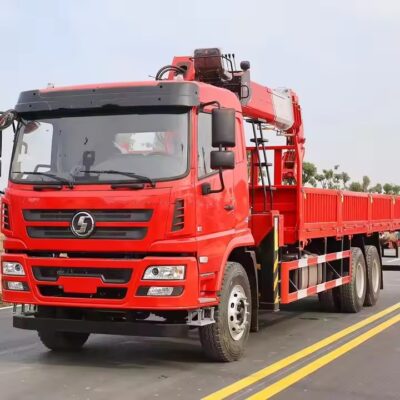Tow trucks are a vital part of the automotive industry, providing essential services such as roadside assistance, vehicle recovery, and transportation. These powerful vehicles come in various types, each designed for specific purposes and capable of handling different towing scenarios. In this blog post, we will explore the basics of holownikS, understand the different types and their uses, and shed light on the diverse capabilities of these vehicles.
- Laweta z platformąS: Flatbed tow truckS, also known as rollback truckS, are one of the most common types of holownikS. They feature a flat, level bed that can be hydraulically inclined and lowered to the ground. This design allows vehicles to be loaded onto the flatbed easily. Flatbed tow trucks are widely used for transporting damaged or non-operational vehicles, as well as for exotic or classic car transportation. Their flat and stable platform ensures secure and damage-free transportation.

- Hook and Chain Tow Trucks: Hook and chain tow trucks were once a popular choice in the towing industry. Jednakże, due to their design which involves using chains to lift the front or rear of the towed vehicle, they are now less commonly used. This type of holownik is suitable for transporting wrecked or junk vehicles, as the chains can be attached to their frames. Jednakże, hook-and-chain tow trucks may cause damage to the towed vehicle, making them less favorable in modern towing practices.

- Wheel Lift Tow Trucks: Wheel lift tow trucks are versatile vehicles that feature a metal yoke and hydraulic system. The yoke is placed under the front or rear wheels of the vehicle to be towed, and then the hydraulic system lifts the wheels off the ground. This type of tow truck is commonly used for light-duty towing, as it offers quick and efficient towing without needing to lift the entire vehicle. Wheel lift tow trucks are popular for their maneuverability and ease of use.

- Integrated Tow Trucks: Integrated tow truckS, also known as heavy-duty or rotator tow truckS, are designed for heavy-duty towing and recovery operations. These powerful vehicles feature multiple axles and often have rotating boom and recovery equipment. Integrated tow trucks are capable of handling large commercial vehicles, buses, and even construction equipment. They provide the necessary strength and stability to safely recover and transport heavy loads, making them an indispensable asset in the towing industry.

- Wheel Dollies: Wheel dollies are not considered traditional holowniks but are worth mentioning due to their usefulness in specific situations. Wheel dollies are compact devices that attach to the wheels of a vehicle and allow it to be towed when all four wheels are on the ground. They are commonly used for towing vehicles with flat tires or those that cannot be easily towed using conventional methods. Wheel dollies provide a cost-effective and efficient solution for moving vehicles short distances.

Understanding the different types of tow trucks and their uses is essential for tow truck operators and industry professionals. It helps them select the most appropriate holownik for a specific job, ensuring safe and efficient towing operations. By utilizing the right holownik for the task at hand, operators can minimize the risk of damage to the towed vehicle and enhance overall customer satisfaction.
 Ponadto, it’s worth noting that tow trucks are subject to regulations and licensing requirements that vary by jurisdiction. Tow truck operators must comply with these regulations to ensure legal and safe operations. It is important to consult local laws and regulations and obtain the necessary licenses and permits before engaging in holownik operations.
Ponadto, it’s worth noting that tow trucks are subject to regulations and licensing requirements that vary by jurisdiction. Tow truck operators must comply with these regulations to ensure legal and safe operations. It is important to consult local laws and regulations and obtain the necessary licenses and permits before engaging in holownik operations.
 Podsumowując, holowniks come in various types, each designed to fulfill specific towing needs. From flatbeds for secure transportation to wheel lifts for light-duty towing and integrated tow trucks for heavy-duty operations, each type serves a unique purpose.
Podsumowując, holowniks come in various types, each designed to fulfill specific towing needs. From flatbeds for secure transportation to wheel lifts for light-duty towing and integrated tow trucks for heavy-duty operations, each type serves a unique purpose.









